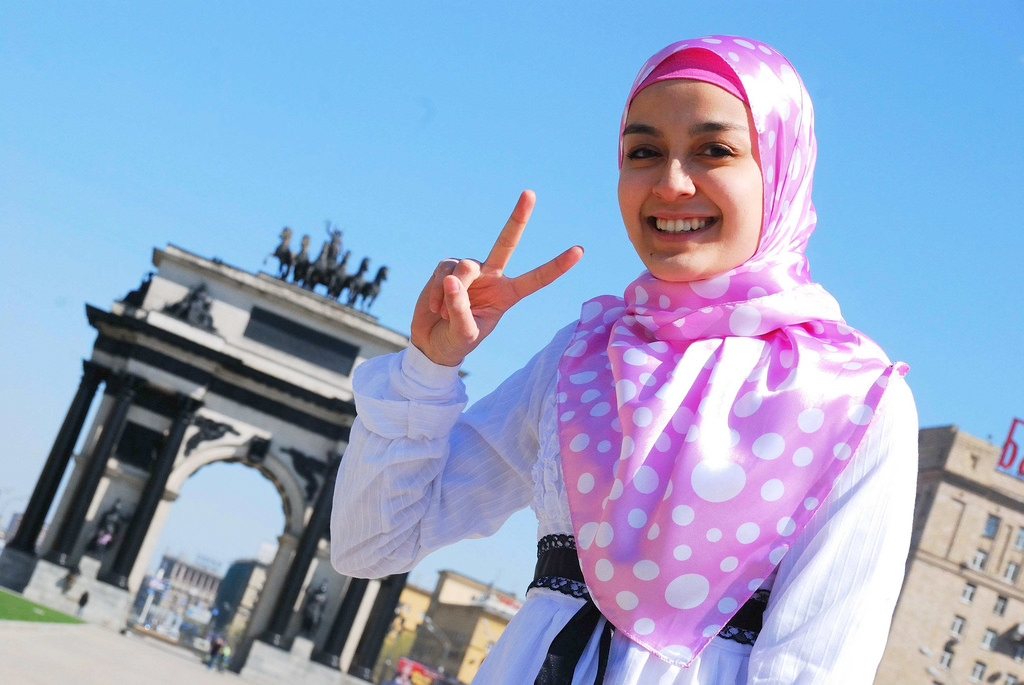This week, the European Court of Justice ruled that it was legal for companies to ban employees from wearing the hijab, as long as such a ban is part of a wider ruling prohibiting any religious or political symbols from being on display at work. Banning hijabs on their own, without such a wider prohibition would, on the other hand, constitute discrimination.
The court issued a statement that read, “An internal rule of an undertaking which prohibits the visible wearing of any political philosophical or religious sign does not constitute direct discrimination. However, in the absence of such a rule, the willingness of an employer to take account of the wishes of a customer no longer to have the employer’s services provided by a worker wearing an Islamic headscarf cannot be considered an occupational requirement that could rule out discrimination”.
What this is means is that if a customer in a café or shop refuses to be served by an employee wearing a hijab, the employer would be discriminating if they then required the employee to take off the hijab. If the employer wanted no visible signs of religious affiliation at all, and also required employees of other religions to remove their crucifix or turban or religious symbolism – as part of a ‘policy of neutrality – that requirement would be considered to be legal.
Restricting the freedom of Muslim women
For many Muslim women who wear the hijab, being told that they are not allowed to wear it at work would mean they would have to give up their job. Unlike the relative simplicity of removing a pendant with a cross on it, a hijab is part of a wider religious and social identity.
As Iman Amrani wrote in the Guardian, “For its wearers the hijab is a core part of their way of life, linked to the way they choose to practise their faith. It is not up for debate.”
When France banned the wearing of the burqa in 2010, the idea – allegedly – was to free women from the confines of an oppressive religion and promote a secular society. In reality, however, it limited where women could go. For those forced to wear the hijab by relatives or partners – apparently those the law was most aimed at ‘freeing’ – the result was that they could not leave the house at all. A change of law wasn’t going to make a controlling partner change their ways, nor would it enable women who believed in the symbolism and modesty offered by a burqa to enter a secular world without one.
In the same way, an employer being given the legal go-ahead to tell its Muslim workforce to leave their hijabs at home is not going to ‘liberate’ those women from the scarves on their heads. It is going to force them to choose between their job and their religion, beliefs, community and society. And it may be rare when the job wins.
Limiting members of other religions
Although the hijab may be one of the most visible symbols of religious belief in Europe, other religions could be affected by this ruling, too. For the Catholic who has to put their crucifix underneath their blouse, or the Church of England member who wants to leave the ash on their forehead after an Ash Wednesday service, an employer objecting could feel like an affront but it would not constitute discrimination in any real way.
It could be argued, too, that a nun wears headgear similar to a hijab, but nuns are in the employ of the Catholic church so are not going to face any of these restrictions there.
But both the Conference of European Rabbis and the United Sikhs’ Advocacy Group have objected to this ruling, the former saying that “This decision sends a signal to all religious groups in Europe” and the latter that the ruling is “disturbing” and allows employers to “override fundamental human rights”.
However, the unique combination of this ruling being against both Muslims and women could be an indication that this law will not, in fact, be as limiting to members of other religions as it is to Muslim women. As an excuse to discriminate against a female minority group, it succeeds quite well on its own.
Both cases in the European court were related to Muslim women, after all.
Amrani went on to say, “Ultimately, rather than increasing integration – which those who advocate the ban desire – it will lead to deeper divisions in our society, with more Muslim women deciding to stay in spaces where they feel safe, and integrating less. There will be increased ghettoisation and resentment”.
Adding oppression to oppression
If Muslim women were not already a severely oppressed group in Western societies, there may be a place for increasing the secularisation of the workplace in this way. However, as long as I believe we should be free to have no religious beliefs, I must also fundamentally support the rights of believers to live in the way that suits their morals and ethics. The fact that the far right has applauded this ban should tell us all we need to know about the fairness and equality is truly offers.
Photo: Zharif Hussein/Creative Commons

